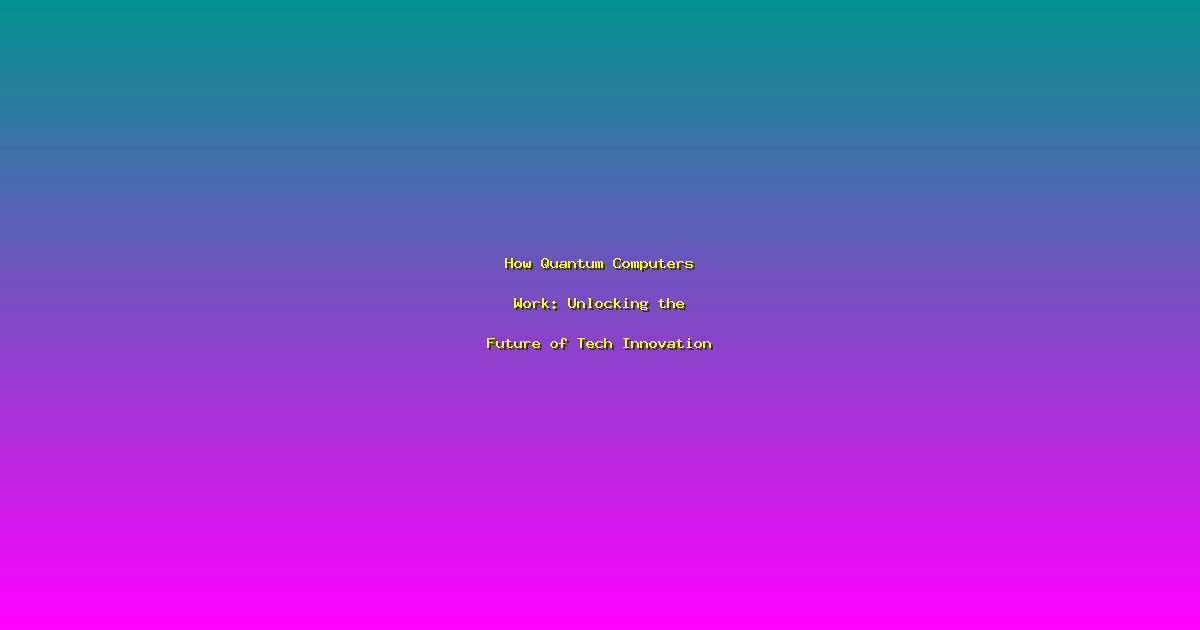How Quantum Computers Work: Unlocking the Future of Tech Innovation
Quantum computing represents the cutting edge of technological advancement, promising to revolutionize computing as we know it. By harnessing the principles of quantum mechanics, these machines have the potential to solve problems that are currently beyond the reach of even the most powerful supercomputers. But how do quantum computers actually work, and what makes them so powerful? Let's dive into the fascinating world of quantum computing.
The Basics of Quantum Mechanics
To understand quantum computing, it's essential to grasp the fundamental principles of quantum mechanics. Unlike classical computers that use bits (1s and 0s), quantum computers use qubits (quantum bits). Qubits can exist in a state of 0, 1, or any quantum superposition of these states. This allows quantum computers to process vast amounts of information simultaneously, making them potentially much more powerful than classical computers for certain tasks.
Quantum Superposition and Entanglement
Two of the most intriguing phenomena that make quantum computers unique are superposition and entanglement. Superposition allows a qubit to be in multiple states at once, while entanglement creates a connection between qubits so that the state of one (no matter how far apart) can depend on the state of another. These properties are what enable quantum computers to perform complex calculations at speeds unattainable by classical computers.
Building and Programming Quantum Computers
Creating a quantum computer is no small feat. It requires sophisticated hardware that can maintain the delicate quantum states of qubits, often at extremely low temperatures. Programming a quantum computer also differs significantly from programming a classical computer. Quantum algorithms, such as Shor's algorithm for factoring large numbers, leverage the unique properties of quantum mechanics to solve problems that would be impracticable for classical computers.
Frequently Asked Questions
What are qubits?
Qubits are the basic units of quantum information, similar to bits in classical computing but with the ability to exist in multiple states simultaneously thanks to quantum superposition.
How do quantum computers differ from classical computers?
Quantum computers can perform certain calculations exponentially faster than classical computers due to their ability to use qubits and quantum algorithms.
What types of problems can quantum computers solve?
Quantum computers are particularly adept at solving problems that involve large datasets, cryptography, and optimization, such as factorizing large numbers and simulating molecular behavior.
What challenges does quantum computing face?
Quantum computers face challenges such as maintaining qubit coherence and developing robust quantum algorithms. There's also the issue of scaling up the number of qubits while maintaining their quality.
When can we expect quantum computers to be widely available?
While there are significant advancements, quantum computers are still in the experimental phase. Wide availability and practical application are expected to increase as technology matures, but a specific timeline is hard to predict.
How will quantum computers impact society?
Quantum computers promise to revolutionize fields such as medicine, cryptography, and material science, enabling breakthroughs in areas from drug discovery to secure communications.

